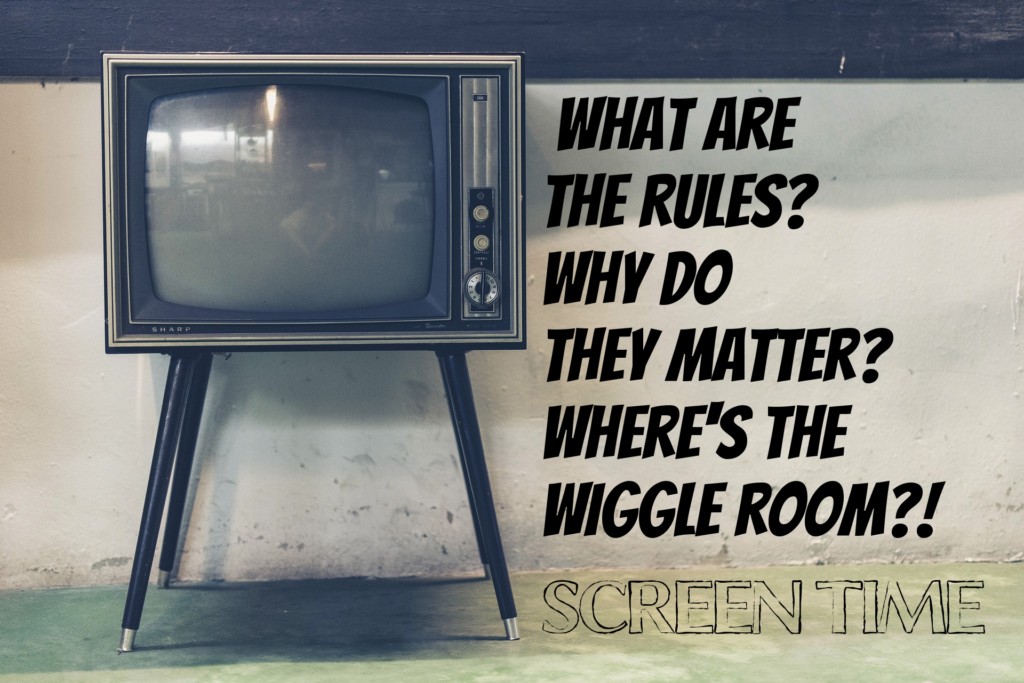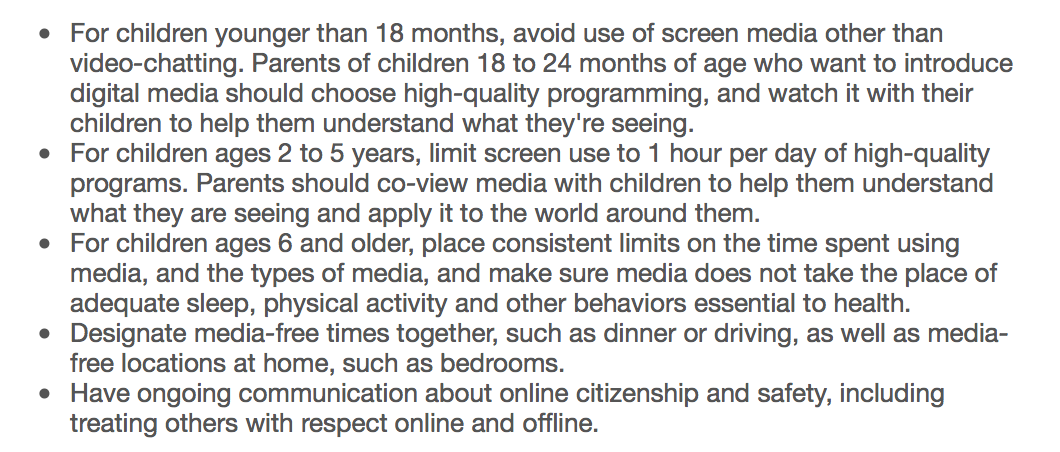
My husband and I have been in a small debate about screen exposure for our infant. While I have been on the side of no (or very limited exposure) he struggles to see the harm in snuggling up to watch a little sports.
In my early career life, I worked as the assistant director of a learning center focused on cognitive processing – the how we learn stuff: visual, auditory, short- and long-term memory, etc. At the time, we tried to stay current on all the research that impacted learning. Without a doubt exposure to screens has an impact on the functional processes of the brain (at least most research indicates there is a likely relationship). I swore I was not going to have my future children watch TV except in limited quantities after two years old.
BUT, and here’s the but in case you worried I was going all sancti-mommy: the real world has lots and lots of screens. You never realized how many until you are a mommy trying to avert your 9-month-olds eyes to follow the zero-time-before-two rule. I want to follow this rule for all the reasons I think it’s there for, but you’ve never seen someone crane their neck so hard as my kid trying to get a glimpse of football players running across a TV in a restaurant as my kid. We are talking near-exorcist head turn.
This is not to mention the new screens parents have to contend with – phones and iPad. And it starts early. For instance, my mother Facetimes the baby nearly daily, and she lives in the same city.
So, is Facetime screen time? How strict are the screen time “rules”? Why do they exist? And how do I convince my husband, who just wants to snuggle the kid and watch a movie, that it’s better to wait till he’s older? I’ve been like a screen-ninja playing the redirection game for months now and I need to find out if I’m working too hard or not hard enough. I set out to do some research to find out what the experts recommend (and why) and also where the real-life-real-parenting wiggle room lies.
I started with my pediatrician just to feel out what our go-to-guy had to say. His exact words were “I live an everything in moderation philosophy. Is a glimpse at a screen here and there going to hurt him? Probably not. Should you sit your kid in front of a TV as a babysitter for 8 hours? No.” While I appreciate that he is a real-world life has to work for everyone kind of doctor, I needed more guidance than the vast cavern of a few glimpses here and there and 8 hours a day! He proceeded to tell me what the American Academy of Pediatrics (AAP) recommends based on my probing, but then reminded me everything in moderation keeps stress lower.
The AAP changed their guidelines in 2016 to be a little less strict. A LITTLE. Originally, they recommended no screen time under 18 months of age. But they have changed the guidelines to okay the use of video-chatting before 18 months. Below is a screen shot of the most current AAP recommendations.

While not everyone follows all AAP guidelines in every area (um, where are my fellow co-sleepers at?), they are usually careful in pulling adequate research together to formulate their suggestions. Most of the research they quote suggests that screen time is not helpful for very young children. Some studies indicate that there is delayed language development in infants who are exposed to more screen time than those who are not. These studies include TV as background noise as findings indicate caregivers are less verbally interactive when the TV is on. There are also studies that early and extended screen exposure has been linked to depression, obesity, inattention, and sleep cycle disturbances in children. The following two articles offer good insight to the available research and links to studies:
Of course, anecdotally we all know someone like my niece who lived on Baby Einstein for a period of time and still makes straight As. Maybe without the show time she would’ve been girl genius 2.0 and now is just high-achieving-gifted-girl. I jest. Most likely the screen exposure that she received simply worked for their family at the time, and they remained interactive during many other parts of the day (I know this to be true).
In light of all the above reading, my husband and I have decided to go back to what the pediatrician said, everything in moderation. I stay home with our 9-month old son and I am able to remain interactive with him throughout the day without ever turning on the TV. And we are comfortable waiting to turn it on until he has gone to bed. However, we let him Facetime the grandparents (and aunties) anytime they would like. I also let him see a short video or two that I take of him doing things or that family and friends send over and we discuss what we are seeing. Then when we are out and about, I no longer worry about him popping his eyes out at every screen he sees. We’ve opted to avoid giving him any of his own electronic devices for as long as we can reasonably hold out in accordance to the AAP recommendations. This works for us, for now, until football season starts back and we have to revisit the debate.
I encourage all families to study, read, and then determine what works best for your family as a whole. For help developing a screen plan that works for your family the AAP offers a specialized tool called the Family Media Plan. Zero to Three also offers resources for navigating screen usage for little ones.
















